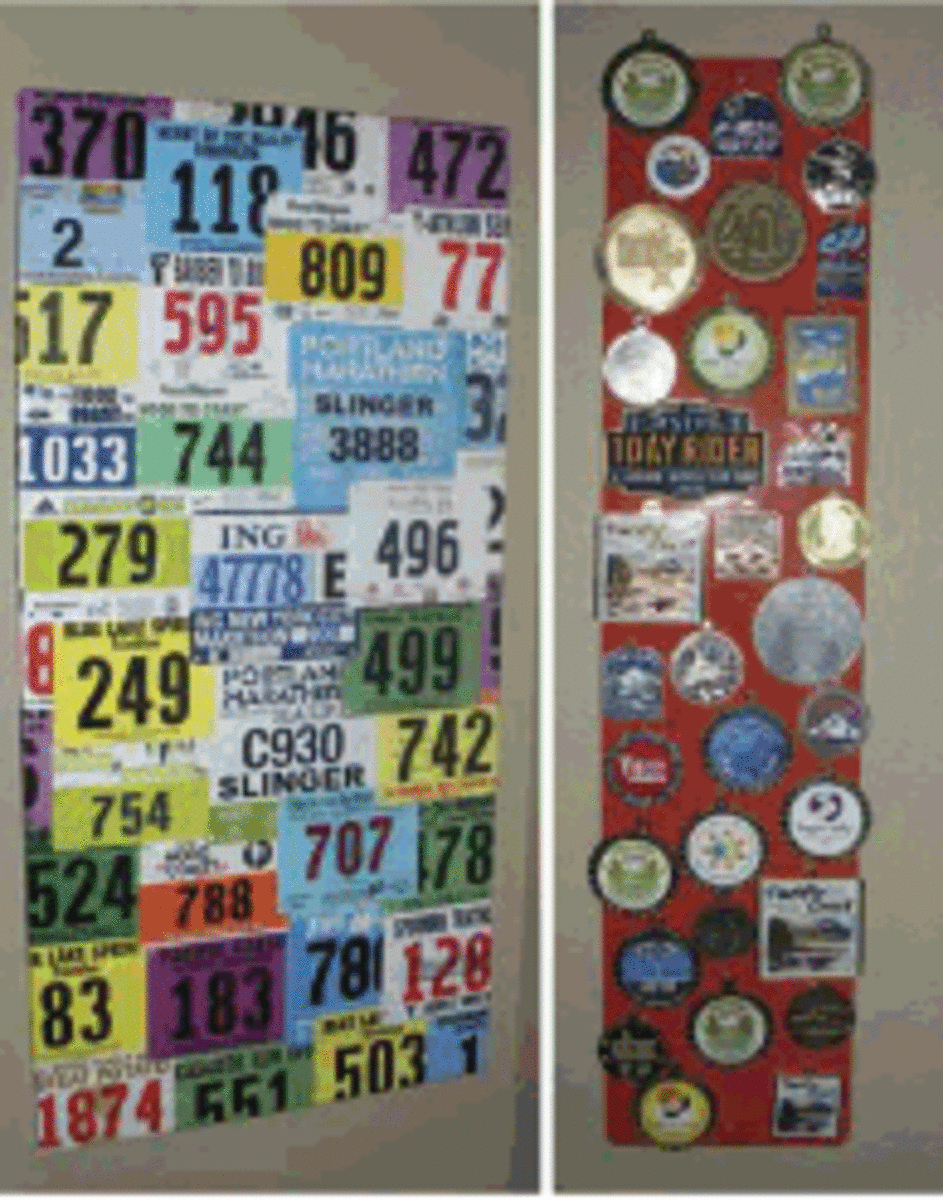Marathon Training: Run Less and Still be Successful

It’s true that successfully completing a marathon, a distance of 26.2 miles is a fete that requires both physical and mental stamina. But in my experience, exponentially more difficult than the marathon its self is the training leading up to race day. On the day of the race, you have throngs of supports, water stations, and a big supply of adrenaline all helping you cross the finish line. But during the months of training—it’s just you, miles of pavement, and hopefully a strong determination to do the work.
I’ve found that a lot of people assume that in order to be successful in a marathon, you need to complete long run every day. This is simply not the case. As you increase mileage, your chance for injury also increases. Personally, as a mom of one year old twins and an avid marathon runner, I really only have time for one long run a week. For me, it’s about running smarter, not longer or harder.
Below, you’ll find a training program that will allow you to run as few as four days a week. The key is to ensure that every run meets a specifically designed training purpose. That is, every mile logged is designed to increase speed, lactate threshold, endurance, and, not least importantly: your confidence.
Easy Runs
On two non-consecutive days, complete an “easy run. ” These are slower than your race pace (usually by a minute or so). The premise is that you are not risking injury by straining yourself and are building confidence with a comfortable and enjoyable run.
Easy runs will only range between 4-7 miles.
Tempo Runs
Tempo Runs are designed to increase your body’s lactate threshold and build speed. Essentially, the goal of a tempo run is to maintain a consistent pace. In his 2007 article for Runnersworld.com entitled “Your Perfect Tempo,” marathon coach Toby Tanser explains that “tempo running is crucial to racing success because it trains your body to sustain speed over distance.”
Complete a 5-9 mile tempo run once a week.
Long Runs
One weekly long run will prepare your body for the physical and mental exhaustion you will face running a marathon. It’s vital that you do not “cheat” on these long runs, as you’ll only be cheating yourself.
Decide on what day of the week, Saturday mornings for example, you’d like to complete your long runs, and set aside time every week to complete these runs.
Increase your long runs each week by a mile or two (never by more than 10%) and every 4 weeks, give yourself a break with an easy run.
Generally, experts agree that the longest training run should be 20-22 miles in order to ensure successful completion of a marathon. I, however, always train up to 28 miles. So, while the length may be up to you, I will suggest giving your body at least 10 days to recover before race day.
Cross-Training
As mentioned above, you don’t need to run every day to complete a marathon. Crossing training, such as using the elliptical trainer, bike riding, or swimming, all increase cardiovascular strength and flexibility while decreasing your chances of injury and burn-out.
Cross train twice a week.
- Runner’s World: Marathon Training, Running Shoe Reviews | Runner's World & Running Times
News, information, and advice for runners, from running equipment reviews to training techniques to races and marathons, at Runner's World - MarathonGuide.com - Marathons, Running Directory and Community
MarathonGuide.com - the complete marathon resource and community. Complete directory of marathons, marathon results, athlete and race news, marathon history, training schedules, chat, email, marathoning humor - everything for the marathon runner and









